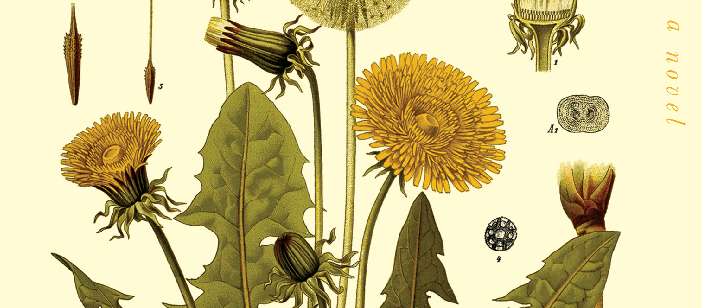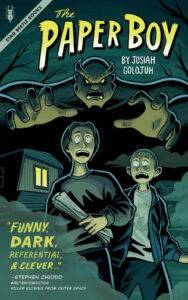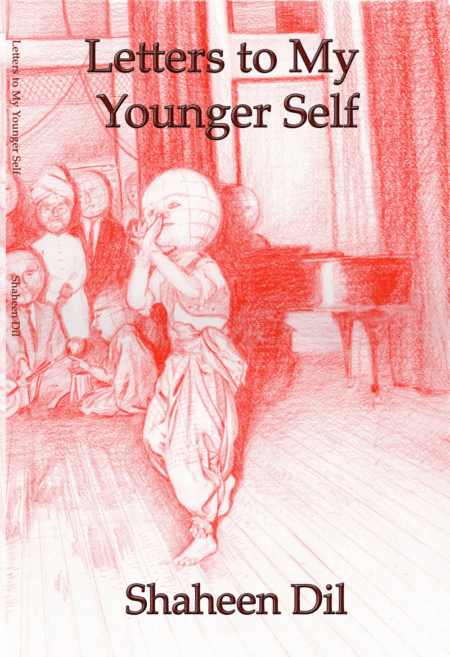From the publisher: “Soon after her husband’s tragic death, Robin Besher makes a startling discovery: He had recklessly blown through their entire savings on decrepit rentals in Four Points, the Appalachian town Robin grew up in. Forced to return after decades, Robin and her daughter, Haley, set out to renovate the properties as quickly as possible―before anyone exposes Robin’s secret past as a teenage prostitute. Disaster strikes when Haley befriends a troubled teen mother, hurling Robin back into a past she’d worked so hard to escape. Robin must reshape her idea of home or risk repeating her greatest mistakes. Margo Orlando Littell, author of Each Vagabond by Name, tells an enthralling and nuanced story about family, womanhood, and coming to terms with a left-behind past…”
About the Author: Margo Orlando Littell grew up in a coal-mining town in southwestern Pennsylvania. Her first novel, Each Vagabond by Name, won the University of New Orleans Publishing Lab Prize and an IPPY Awards Gold Medal for Mid-Atlantic Fiction. She lives in New Jersey with her family.
“I loved The Distance From Four Points! Tough women rise up and take back their lives–a story for today–Robin Besher is a new kind of hero. After a rags to riches ride, she loses her husband, her house, her fortune and is driven back to the doom of her impoverished past and all its secrets to begin again. This time she is on her own with an angry teenager in tow. How she survives is so inspiring that you will stay up all night to finish this book and never forget Robin’s triumphant reconciliation with her past and present in Four Points.” –Jonis Agee, author of The Bones of Paradise
Chapter One
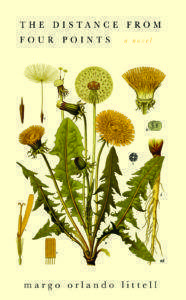 There was a time when, upon pulling into the glittering Steel Star office park, Robin Besher would have wished for more flowers. Surely, she would have thought, we pay enough in retainer fees to warrant more beautiful surroundings. The landscaping, amid all the brushed chrome and wide parking spaces, was practical at best, with boxwoods under the win¬dows and a few spindly sand cherries. These were the kind of plants that could survive the long Pennsylvania winters, and that was reason enough, she supposed, to have them.
There was a time when, upon pulling into the glittering Steel Star office park, Robin Besher would have wished for more flowers. Surely, she would have thought, we pay enough in retainer fees to warrant more beautiful surroundings. The landscaping, amid all the brushed chrome and wide parking spaces, was practical at best, with boxwoods under the win¬dows and a few spindly sand cherries. These were the kind of plants that could survive the long Pennsylvania winters, and that was reason enough, she supposed, to have them.
Robin wound her ivory pashmina around her throat and ducked out of the car, keeping her face lowered against Jan¬uary’s bitter wind. She wasn’t wearing gloves. She’d lost the left hand of her favorite pair, black lambskin with a cashmere lining, and hadn’t replaced it. Her nails looked terrible, rough and torn after she’d peeled the gels from her last manicure off herself. This was what she had left. She’d buried her privileged life along with Ray: the Lululemon and Pittsburgh Women’s League, the monthly shipments of pricey health shake mix, her home in suburban Mount Rynda with its updated kitchen and Ethan Allen bedroom set—as out of reach now as the callused palms of Ray’s hands.
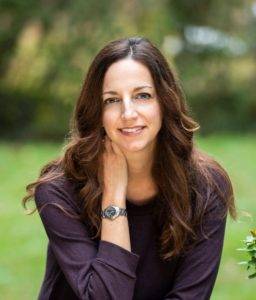 She passed the office where Ray used to visit their accoun¬tant. She’d been invited to their meetings, but only as a courtesy, and she’d always had something better to do: clothes to buy for Haley, a dinner to plan, a hair appointment to keep. Now, she wished she’d gone with Ray to every meeting, if only to knock him out the moment he uttered the words investment property.
She passed the office where Ray used to visit their accoun¬tant. She’d been invited to their meetings, but only as a courtesy, and she’d always had something better to do: clothes to buy for Haley, a dinner to plan, a hair appointment to keep. Now, she wished she’d gone with Ray to every meeting, if only to knock him out the moment he uttered the words investment property.
How had Scott Chatham, their attorney, put it to her? The rentals Ray sunk the entirety of their savings into had rep¬resented long-term plans. Buying four decrepit properties—two multi-family homes, two single—in a destitute former coal town was a money-making venture that Ray, a high-end contractor, had been well situated to take advantage of. He took a risk. A risk—he’d cashed out their life insurance, believing that, in time, he’d make it all back and more. No one could have predicted that his kayak would overturn on a day no sane person would have been out on the Yough.
Scott, her friends, even her hairdresser expected Robin to be furious, but Robin couldn’t explain that it wasn’t just that Ray had spent the money. Despite what everyone said about marriage and partnership, it was his money, and there had never been much debate between them about that. No, the thing she could never forgive was the town. Ray had bought the properties in Four Points, her hometown, the very place he’d plucked her out of. Now that he was dead, her name was on the deeds. She owned a piece of that place, a burden she had to carry again, twenty years after her escape.
When Robin pulled open the heavy glass door that led to Scott’s firm, she met a gust of hot, cedar-scented air. She breathed deeply. The glowing aroma diffuser, the plush car¬pet, the receptionist with trendy highlights, the jades on her desk—Robin already missed them. This might be her last visit to such an expensive, luxurious office. Scott was being kind, keeping this appointment, fully aware that Robin no longer had any way of paying him. It was a familiar feeling, that dependence.
“Robin.” Scott stepped out of his office, extended a hand to welcome her in. “Good to see you. It’s a cold one today.”
She sat on the leather chair in front of his desk, smoothed her wool slacks. She couldn’t quite meet Scott’s eye, her attention drifting over his shoulder to familiar surround¬ings. Rows of dark bookshelves, family photos in gold-plated frames, thick hunter-green draperies over standard-issue corporate windows. She’d seen them countless times before, but they’d never seemed so aggressively showy.
“The orchid bloomed again,” she observed, gesturing to a hot-pink flower in a porcelain pot. She’d given it to Scott as a thank you last year for trying to pull strings with her mort¬gage lender. She should have saved the fifty dollars.
Scott considered the orchid politely, then cleared his throat. “So. Robin.” He peered at her, gauging whether she’d make a scene as she had many times before. Of course, Robin no longer sobbed through the meetings. Whatever humiliations she’d endured in this office—the piecing away of the life that had buffered her from all her former desperation—they had all led up to this, the final indignity.
“Call the bank again,” she said. “Ask for more time.”
Scott’s face twitched with pity. “They gave more time. They lowered your rate. You still can’t pay the mortgage.”
“I can try.”
Scott sat back. “Robin. We both know there’s no job you can get that’ll keep you in that house.”
Oh, but she had tried. She’d lasted two weeks behind the register at Giant Eagle. The manager felt bad when he fired her, but Robin couldn’t stop herself from crying through every shift. Then she’d gotten a waitressing job at an Olive Garden, but she was decades older than the other servers and couldn’t keep up with the dinner rush like she could when she was young and starving. She didn’t bother to wait to be fired. She wanted to be the kind of woman who’d hustle when shit hit the fan, but she wasn’t. Not when the odds were so clearly stacked against her.
“The house is lost already,” Scott said. A single file folder sat on the desk between them. He passed it from one hand to the other, then planted his palm on top. “There are no saleable assets,” he said. “We need to figure out where you’re going to go.”
“I’ll find an apartment. Okay? Something close by so Haley can stay at Our Lady. She’s thirteen. I won’t make her change schools halfway through the year. I have to get going, Scott. School lets out soon.”
She gripped her handbag and stood.
“Sit down.”
Scott’s desk phone trilled. He glanced at it, discreetly pressed a button to silence the ringing. He flipped open the folder and nudged it toward her. Inside were spreadsheets, pages of them. They’d gone over spreadsheets countless times but always on the computer that sat off to the side—him coun¬seling and her adjusting. Now, in hard copy, they were reality. Nothing left to change.
Scott tilted the first page so that they could both see it. “Look. Rentals in Mount Rynda—the kind you’d be looking for—start at $2,500 a month. That’s completely out of reach.”
He’d laid it all out in a grid. He’d supposed that she would work as a receptionist—optimistic—and waitress at night, making her $28,000 a year after taxes. Less Haley’s Catholic school tuition, less groceries, less gas, less utilities, less health insurance. All that less came down in a stream of red.
When Scott spoke, his voice was even. He delivered hard truths every day. “I’m going to be blunt. You can’t afford to stay in Mount Rynda. Do you understand what I’m saying?”
“I don’t understand any of this.”
“You have to leave.”
“Absolutely not.”
“The Four Points properties are all you have left, Robin.”
“You told me I can’t sell them, the condition they’re in.”
“You can’t sell them. But you can live in one of them for free, and they’re a way to make a living. Stay with me, Robin.” He flipped to the next sheet. “Right now you’ve got tenants in five units, which comes to $1,900 a month if every tenant pays. You’ll live in one empty property and fix up the worst-off apartment.”
On the sheet, Robin could see that he expected her to have a tenant by March. Just over a month to fix up a place in God only knew what condition. Well, Robin could imagine. She’d lived in places like that, and she knew nothing about how to make them fit for occupancy. A fixed-up place would get her $450 a month, and Scott had her raising all the rents after half a year. No more than $3,000 a month in rent payments would come in even then, not including upkeep. Her eyes returned to the cells detailing the first empty unit, the place where she was supposed to live.
“You’re saying the only place I can go is Four Points?”
“You need to get the rents from Ray’s properties. In the meantime, it’s a roof over your head. And Haley’s.”
The mention of Haley was supposed to make her feel guilty, and it did. But there was more at stake, and living in Four Points could only do Haley harm.
“How much do I have to make to come back home?”
“It’s not that clear.”
“How much?”
Scott sighed. “Ten grand,” he said. “You need to sock away ten grand before you can come back here.”
“I’ll need $10,000?”
“Well, $5,000 for security and first month on a rental. Another $5,000 for you and Haley to live on while you find a job. In the meantime, you can be happy. Make a new life.”
“Not in Four Points.”
Scott raised his eyebrows. Robin didn’t know if it was possi¬ble for Scott or anyone else to look into her past life, but she’d never been willing to take the risk. Even directly acknowledging her feelings about Four Points felt dangerous.
“A lot of worse-off places in southwestern P-A,” Scott said.
“I grew up there. I made a lot of mistakes.”
“We all did. Hell, we were young.”
Whatever mistakes Scott had made in his life were noth¬ing close to the things she’d done. She almost wanted to tell him the truth, show him exactly why he had to find another place—another way—for her to live.
Scott straightened the papers in front of him. “Well, I don’t know what else to tell you. Haley needs to be your first priority.”
“That’s exactly why I can’t go back.”
Scott was trying to help, trying to be a friend to her the way he’d been to Ray, but he didn’t know her. No one in Mount Rynda did. He couldn’t possibly understand that a choice between Four Points and starving wasn’t so easy to make. If she didn’t have Haley, there’d be no question: she’d starve.
Scott flipped the last spreadsheet over. On the back, he’d written a name, Tom Frost, and a telephone number.
“Friend of Ray’s. Another landlord. He’ll be happy to get you set up.”
Robin had the distinct feeling that she was being passed to someone else. She supposed that Scott felt he had taken over for Ray, in some unspoken chain of custody. Her whole adult life had been this way. Before Ray, there had been—well, but that was before.
“I’m going to make it right,” she said. “I know you don’t believe me. I’ll go if I have to—but I’ll be back in Mount Rynda by spring.”
This excerpt from The Distance from Four Points: A Novel by Margo Orlando Littell is published here courtesy of the author and should not be reproduced without permission.


